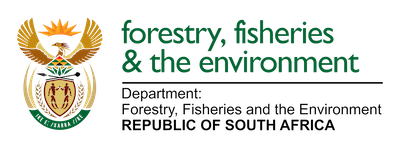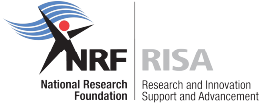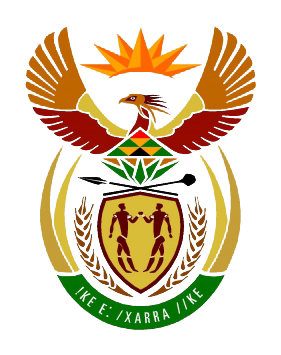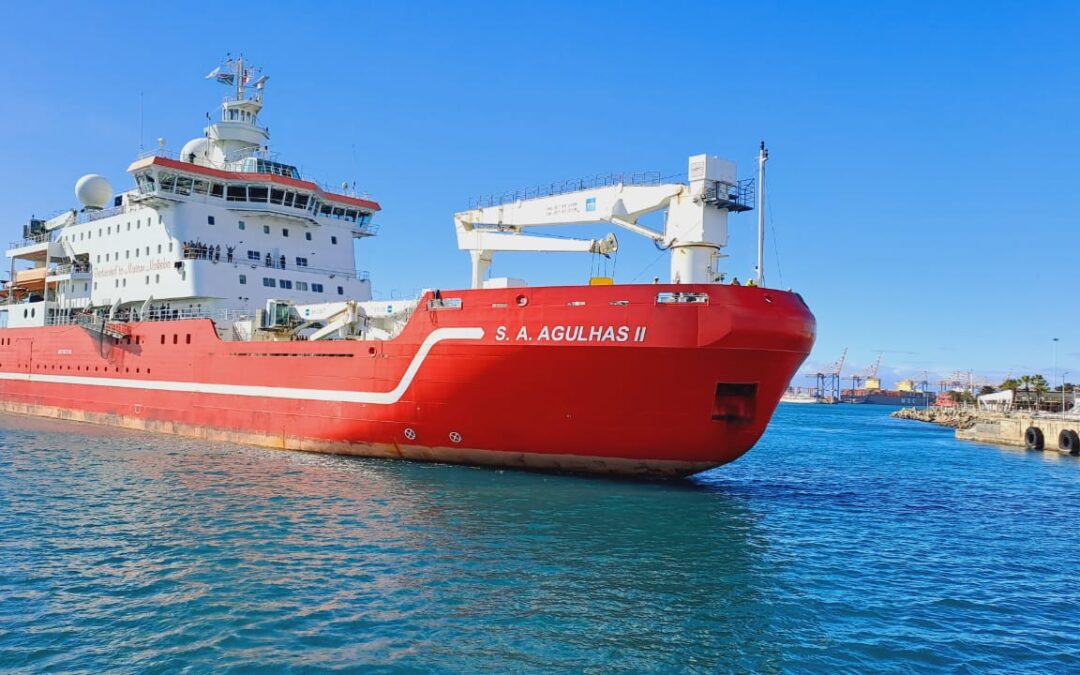
by Ria Olivier | May 18, 2023 | Announcement, Marion Island, News, Newsletters>Marion Island Newsletters, Overwintering Team, Research, SA Agulhas II, SANAP, SAPolarRI, SAPRI, sub-Antarctic, Team member, Team Photo
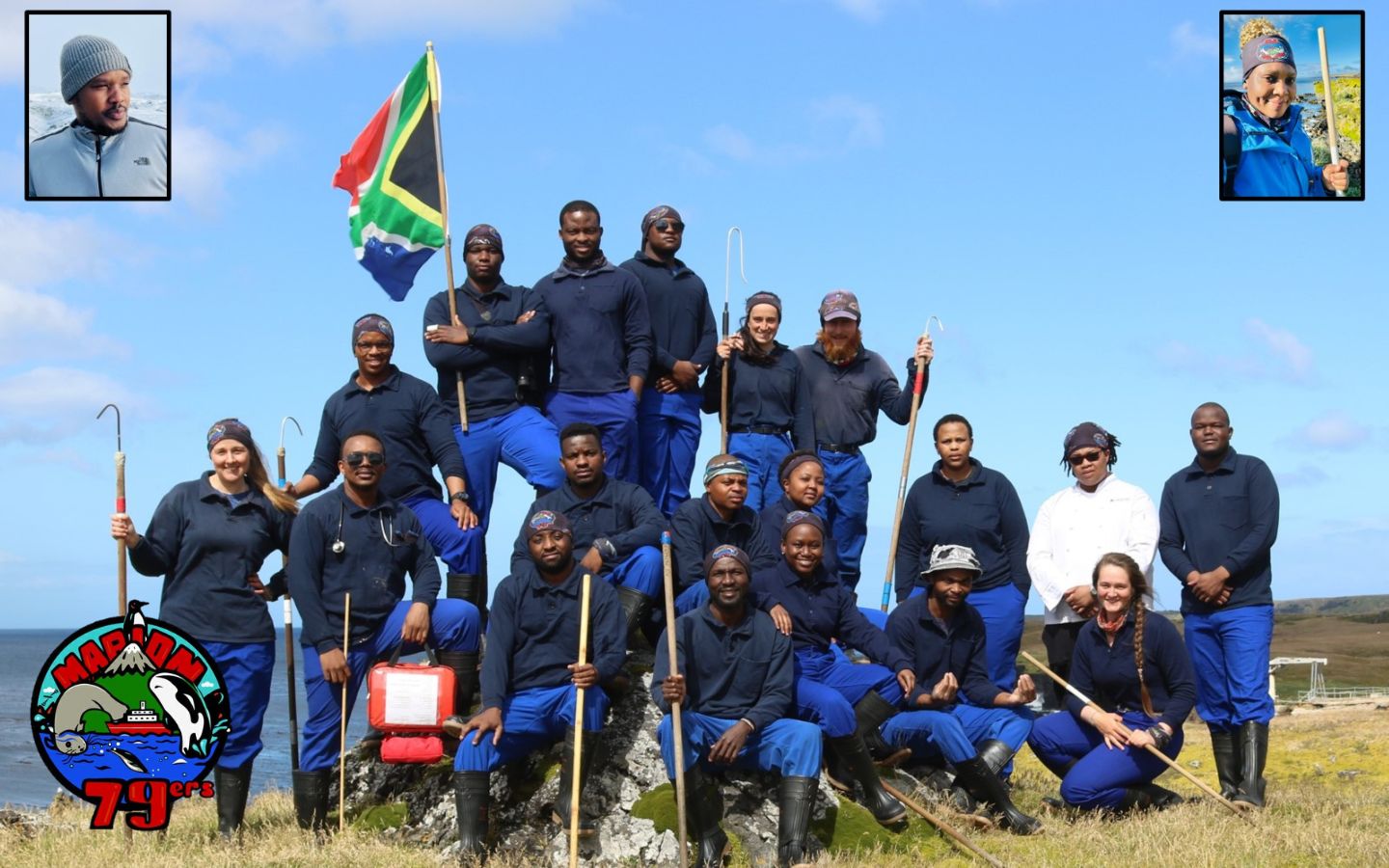
The 79th Marion Island overwintering team arrived on Marion Island on 21 April 2022.
They are back in Cape Town, after spending 386 days on the island and 6 nights on the S.A. Agulhas II for the journey home.
If you want to know more about the work this team did on the island, check out their newsletters (click on the link below).
Marion79 Newsletters
The featured image is the team’s official team photo and displayed on the wall inside the sub-Antarctic Marion Island research station.
Team Photo:
Top row (L-R): Banele Dosi (MIMMP Sealer), Samuel Peta (O & C Birder – DFFE), Sanele Action Mkhize (Diesel Mechanic), Siphesihle Faltein (Assistant Meteorological Technician – SAWS), Lucy Smyth (MAPRU/NMU Birder), Michael Ross (MIMMP Sealer).
Middle row (L-R): Monica Leitner (MIMMP Killer whaler/Sealer), Mndeni ‘Amani’ Hlatshwayo (Medical Orderly), Thendo Sikhwari (Senior Meteorological Technician – SAWS), Andile Ace Mdluli (O & C Birder – DFFE), Gladys Kemei (Communications Engineer and Deputy Team Leader), Tankiso H. Moso (SANSA Electronics Engineer and Science Team Leader), Ntlangemhlophe Sanele Sukude Nombekela (Chef), Mishumo Masithembi (Environmental Control Officer).
Bottom row (L-R): Gcobani Tshangana (Assistant Environmental Control Officer), Austin Acro Gumba (UKZN Astrophysicist), Tanganedzani Tshitavhe (Assistant Meteorological Technician – SAWS), Tshimangadzo Jufter Munyai (Base Engineer and Team Leader), Elsa van Ginkel (MFM Ecologist).
Inserts (left): Abuyiselwe Nguna (Geomorphologist); (right): Vhuawelo Simba (MFM Ecologist). These team members were evacuated from the island in July 2022, due to injuries obtained.
MAPRU/NMU – Marine Apex Predator Research Unit / Nelson Mandela University; MFM – The Mouse-free Marion Project; MIMMP – Marion Island Marine Mammal Programme; DFFE – Department of Forestry, Fisheries and the Environment; O & C Birder – Oceans and Coasts Birder; SANSA – South African National Space Agency; SAWS – South African Weather Service; UKZN – University of KwaZulu-Natal.
Images taken on arrival – 18 May 2023
Featured image credit: Tshimangadzo Jufter Munyai (Base Engineer and Team Leader).
Arrival images credit: South African Polar Research Infrastructure research coordinators.
Anche Louw, South African Polar Research Infrastructure (SAPRI DPS Node), 18 May 2023
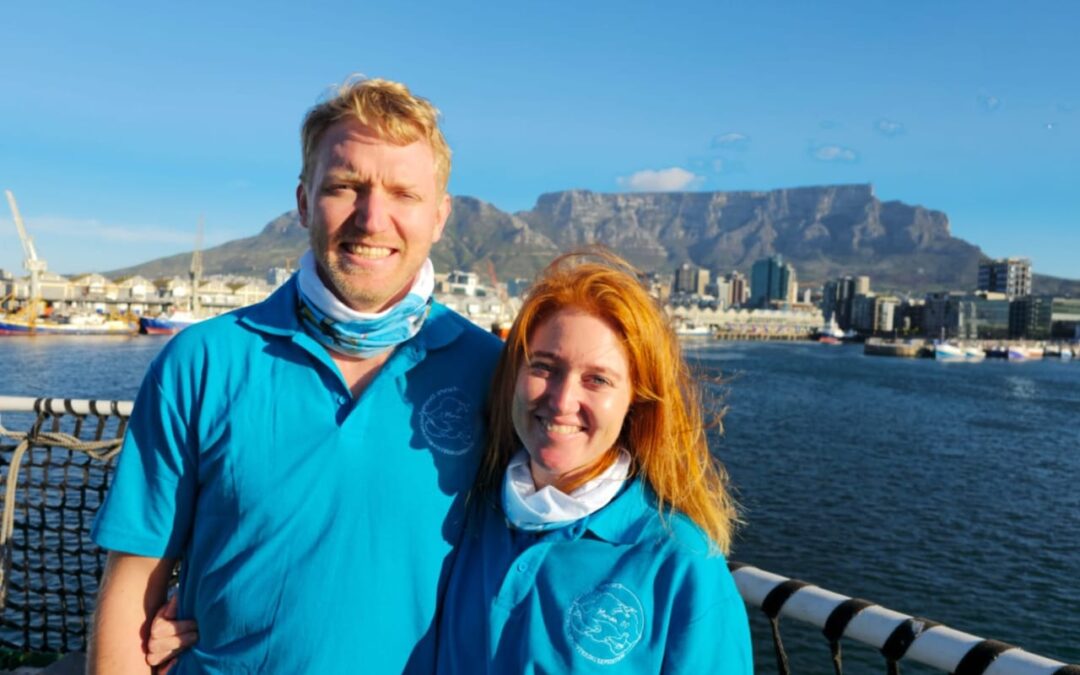
by Ria Olivier | May 10, 2023 | Current Event, Marion Island, News, Overwintering Team, Prince Edward Islands, Research, SANAP, SAPRI, Science, Southern Ocean, Stations, sub-Antarctic, Team member
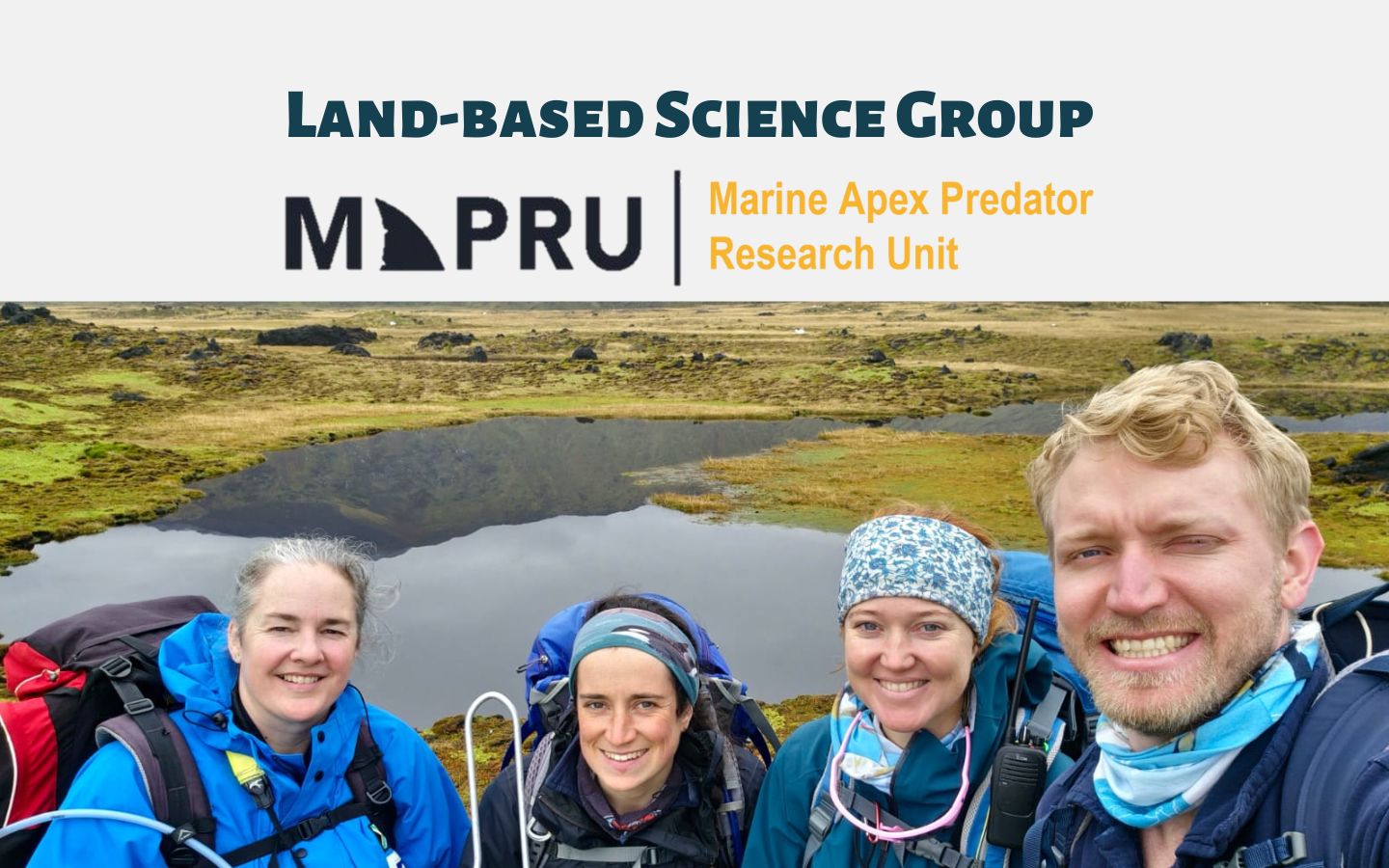
| TEAM | MAPRU | Affiliation |
| Project Name | Avian scavengers & seabirds |
| Principal Investigator | Dr Maëlle Connan | MAPRU, Nelson Mandela University |
| Co-Investigator | Prof Peter Ryan | Fitzpatrick Institute of African Ornithology, University of Cape Town |
| M79 Field Assistant | Lucy Smyth | MAPRU, Nelson Mandela University |
| M80 Field Assistant | Christopher Jones | MAPRU, Nelson Mandela University |
| M80 Field Assistant | Michelle Risi | MAPRU, Nelson Mandela University and the South African Polar Research Infrastructure (SAPRI) |
This team is studying seabirds at Marion Island and has two projects for the period 2021-2023:
1) Avian scavenger project focusing mostly on Black-faced Sheathbill, Kelp Gull and Brown Skua as well as some of their prey.
2) FitzPatrick long-term monitoring of Wandering Albatross, Grey-headed Albatross and Northern Giant Petrel.
More about the avian scavenger project:
This project started in 2021. It is tightly linked to the Mouse-Free Marion project.
Our aim is two fold: 1) we fill identified scientific gaps at the bird level that are crucial for best planning of the mouse eradication and development of appropriate mitigation measures. We are mostly focusing on three species of avian scavengers: Black-faced Sheathbill, Kelp Gull and Brown Skua and some of their prey. 2) we propose to use the three scavengers as indicators of recovery of the terrestrial ecosystem post-eradication by establishing baselines for the scavenger guild and their prey against which the impact of a successful mouse eradication can be measured in years to come.
More about the FitzPatrick long-term monitoring project:
The FitzPatrick long-term monitoring of Wandering and Grey-headed albatrosses and Northern Giant Petrel started in the early 1980s and has continued ever since. This individual-based monitoring of threatened species allows us to study the threats they face at sea (e.g. fisheries) and on land (e.g. mice) in order to act and decrease these threats and improve the conservation status. The species’ long-term monitoring is crucial as it allows us to decipher abnormal years from long-term trends.
More about the fieldwork:
The two projects above involve for example extensive counts of birds, lots of hiking, observations of bird behavior and record keeping of the activity of known individuals year after year.
What are your plans for this takeover:
During the takeover, we will be debriefing the year of Lucy Smyth who has worked on the island for our projects since April 2022. We will also train Chris and Michelle for the year ahead in all aspects, from field work to data entry and back-ups.
Follow MAPRU:




Follow PFIAO:




Text by Dr Maëlle Connan.
Images supplied by Christopher Jones.
Featured image: The MAPRU takeover 2023 team. L-R: Dr Maëlle Connan (PI), Lucy Smyth (M79 MAPRU Field Assistant), Michelle Risi (M80 MAPRU Field Assistant) and Christopher Jones (M80 MAPRU Field Assistant). Image taken on the Western side of the island.
Anche Louw, South African Polar Research Infrastructure (SAPRI DPS Node), 10 May 2023
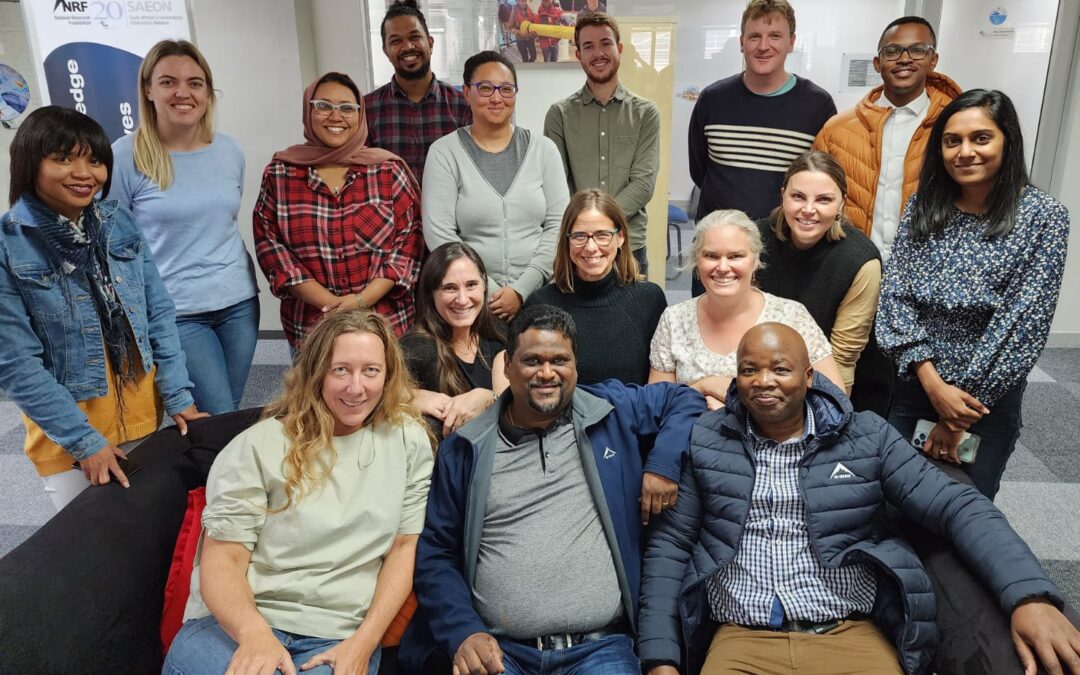
by Ria Olivier | May 4, 2023 | Announcement, Antarctica, Gough Island, Legacy, Marion Island, News, Prince Edward Islands, SA Agulhas II, SA Polar Research Infrastructure, SANAE IV, SANAP, SAPolarRI, SAPRI, Southern Ocean
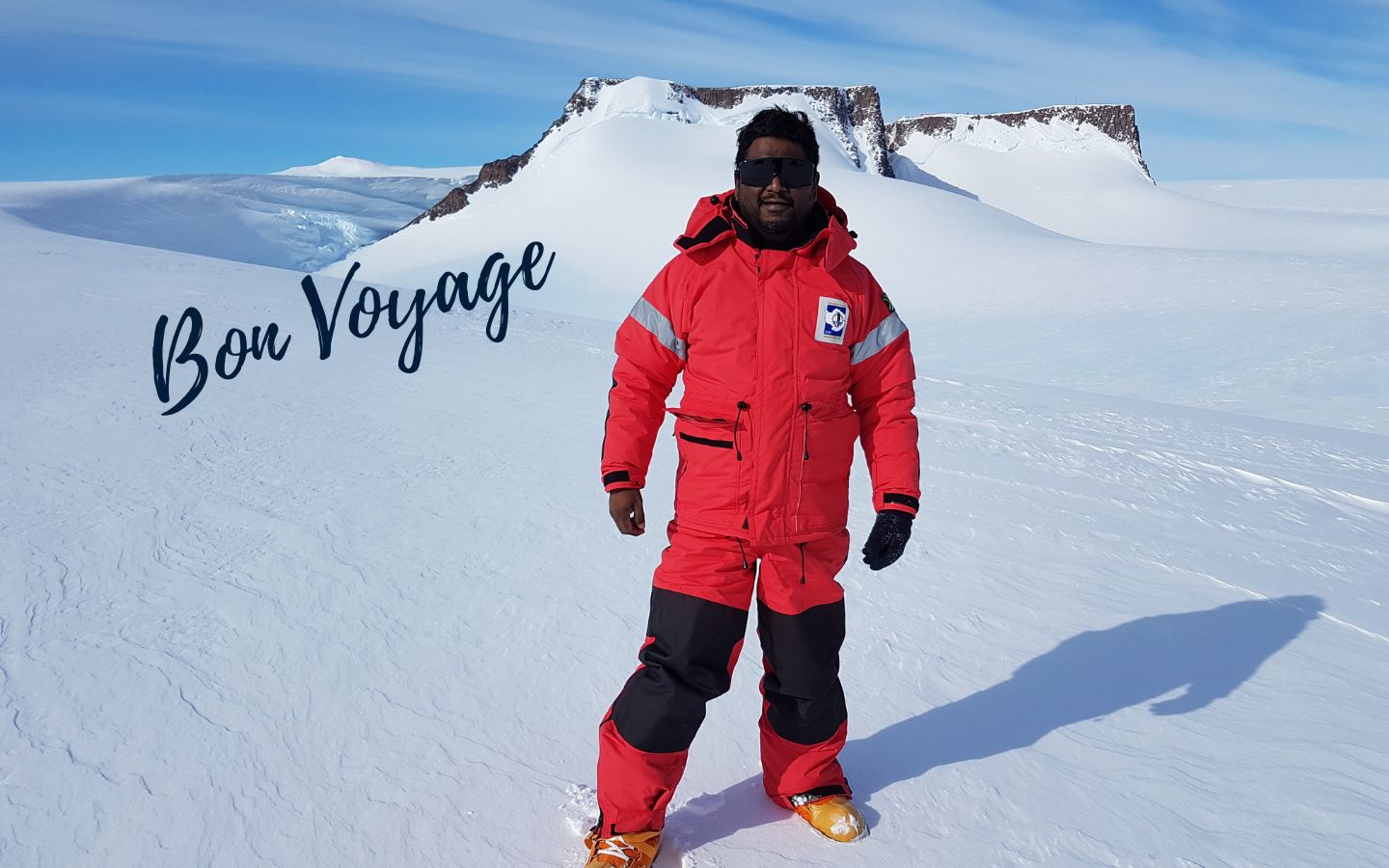
Dear Colleagues,
As I prepare to turn the page of a decade-long chapter of managing Operations and Infrastructure Support for Antarctica and Southern Ocean work and move on to new horizons, I wanted to take a moment to express my heartfelt gratitude to each and every one of you. Working together in enabling South Africa’s presence in this unique and challenging environment has been an unforgettable experience that has enriched my life in countless ways.
The extreme conditions and remoteness of the environment have demanded the best of me, and I am incredibly proud to have been part of it all. It sometimes felt like dealing with the logistical complexities of supporting Marine and Antarctic activities were the same as navigating the harsh ice conditions. We have faced and overcome numerous challenges as a team. Even though we may not have agreed on everything, the bonds we have built and the memories we have made will always hold a special place in my heart. I am truly grateful for the friendships, support, agreements and disagreements we have shared.
I am also deeply appreciative for being entrusted to manage South Africa’s presence in these pristine environments, and to have personally witnessed the beauty and wonder of Antarctica, Marion Island and Gough Island. The rough seas, breathtaking landscapes, unique wildlife, and understanding that there is so few which get this opportunity, have left an indelible mark on me, and I will forever cherish these memories.
As I move on to new endeavours away from the Ocean and Polar space, I will carry with me the valuable lessons I have learned especially when dealing with an unpredictable environment – the importance of adaptability, resilience, teamwork, and tenacity. The various curveballs and unexpected challenges have made me more resourceful in finding solutions. I am confident that the skills and experience gained will serve me well in my future pursuits.
I would like to extend my heartfelt thanks to each and every one of you for your unwavering support, dedication, and friendship during my tenure in the Antarctic and Marine space. I will always treasure the memories and the connections made, and I wish you all the very best in your ongoing work in Antarctica and the Southern Ocean or wherever your paths may lead you.
Thank you for being a part of this incredible journey, and please stay in touch.
With deepest gratitude,
Nish Devanunthan
Former Operations Coordinator: South African Polar Research Infrastructure (2022 to 2023)
Former Director – Operations and Engineering: South African National Antarctic Program (2013 to 2022)
Farewell gathering at SAEON Egagasini Node end of April 2023
Message from the SAPRI Team:
Even though Nish was with SAEON and SAPRI for only 9 months, he left a great legacy and managed to really ramp up the operations within SAPRI. He has a fountain of knowledge on Antarctica and Islands, DFFE, the S.A. Agulhas II and supply chain management, yet he still has a great sense of humour and commitment to action in the face of bureaucracy.
Nish, fair winds and following seas, we have the watch (although might ring you every now and then!).
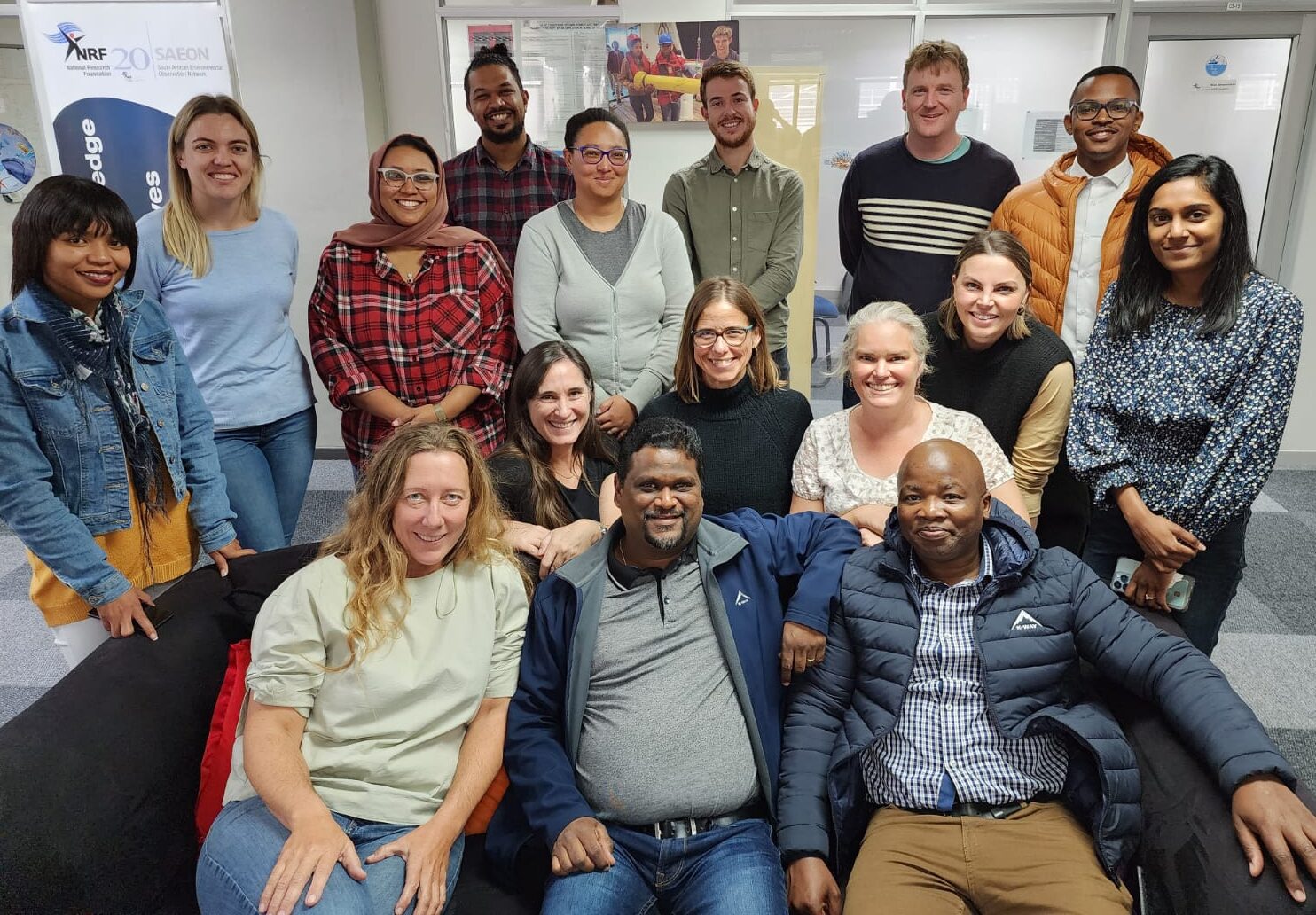
SAEON Egagasini Node and SAPRI Team (L-R) Back: Simoné Louw (Node Administrator), Laura Braby (Postdoctoral Research Fellow), Saffiya Seddick (Seamap Coordinator), Juan-Jacques Forgus (Technician), Nicole du Plessis (Science Officer), Arno Botha (PhD Student), Zach Smith (Systems Developer), Nkululeko Memela (Operational Ocean Modeller); (middle) Lara Atkinson (Offshore Marine Scientist), Jennifer Veitch (Numerical Ocean Modeller), Anne Treasure (SAPRI DPS Node Manager), Anche Louw (SAPRI Digital Marketing and Communications Manager), Daneeja Mawren (Postdoctoral Research Fellow); (front) Juliet Hermes (SAEON Egagasini Node Manager and SAPRI Manager), Nish Devanunthan (Former SAPRI Operations Coordinator) and Thomas Mtontsi (Science Engagement Officer).
Feature Image: Nish Devanunthan at the South African National Antarctic Expedition Station, SANAE IV.
Anche Louw, South African Polar Research Infrastructure (SAPRI DPS Node), 04 May 2023
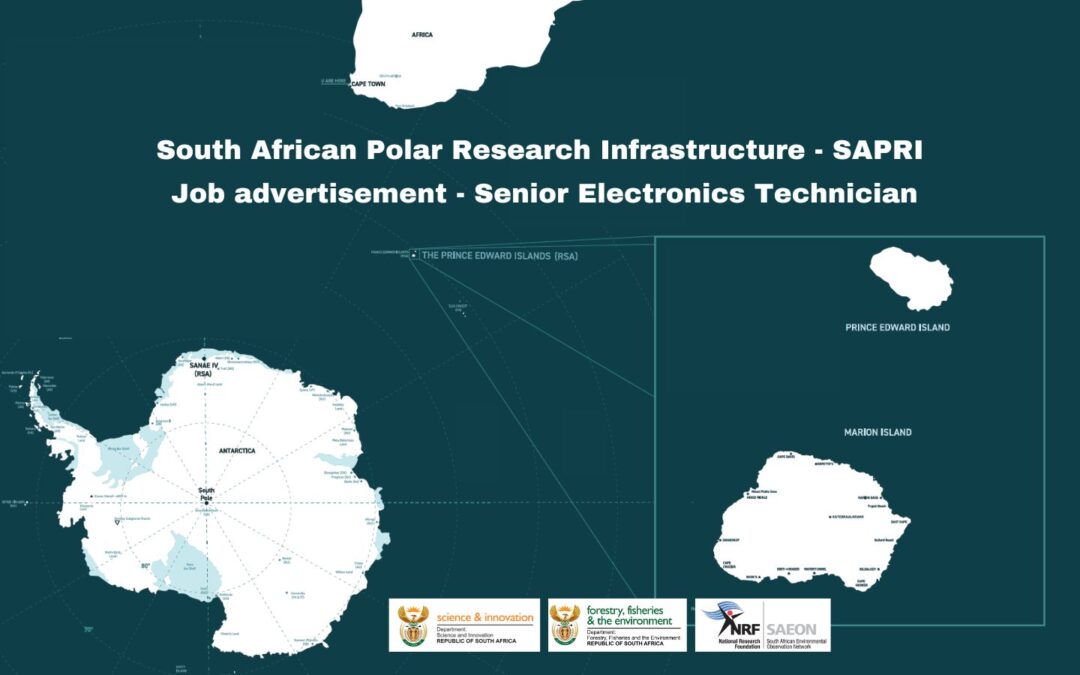
by Ria Olivier | Nov 2, 2022 | Announcement, Antarctica, Gough Island, Jobs, Marion Island, Prince Edward Island, Prince Edward Islands, SA Agulhas II, SA Polar Research Infrastructure, SANAE, SANAP, SAPolarRI, SAPRI, Science, Southern Ocean, sub-Antarctic
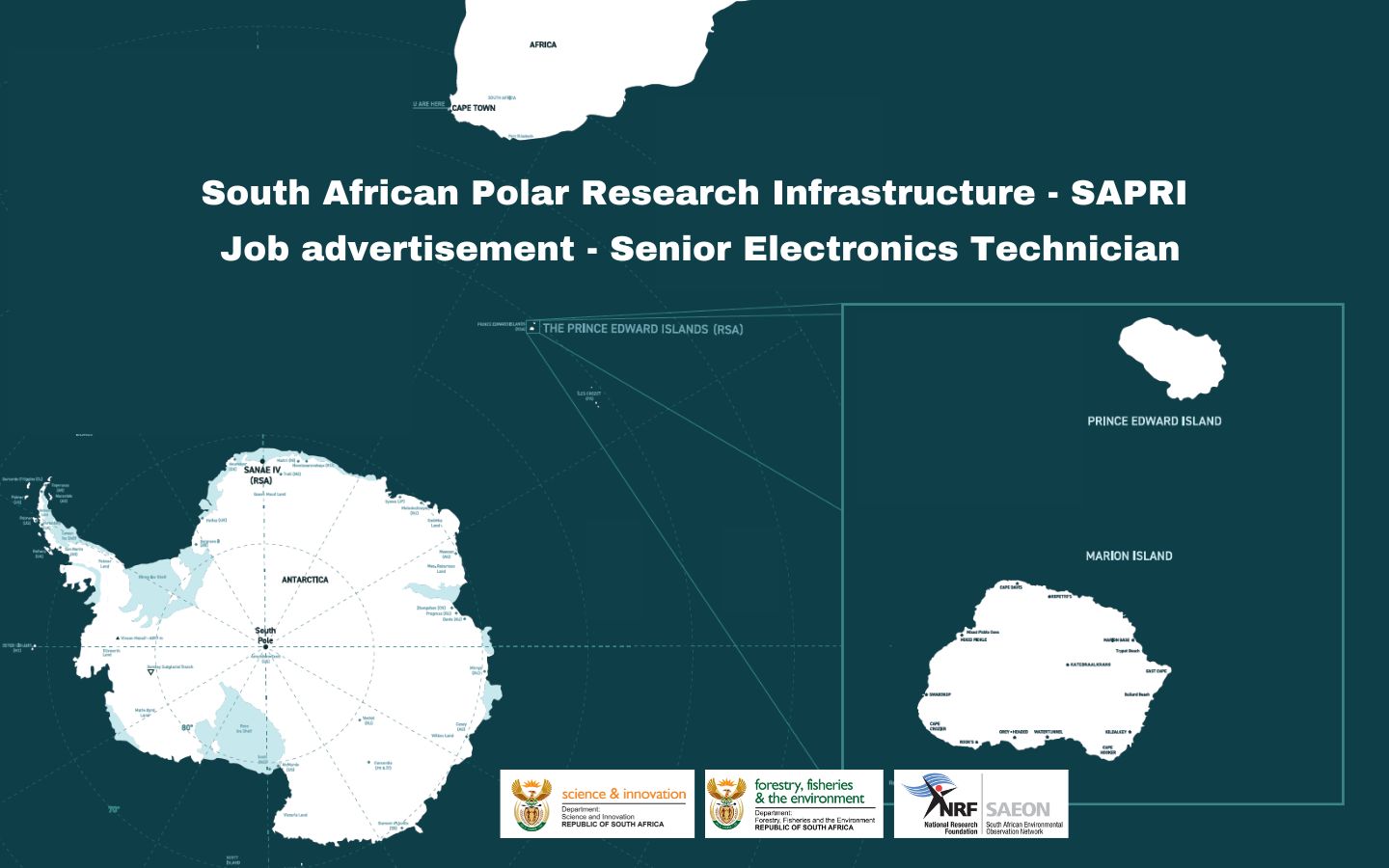
As per job advertisement:
The South African Environmental Observation Network (SAEON) is a research platform funded by the Department of Science and Innovation (DSI) and managed by the National Research Foundation (NRF).
SAEON is mandated to establish and manage long-term environmental observatories; maintain reliable long-term environmental data sets; promote access to data for research and/or informed decision making; and contribute to capacity building.
This position is supported by the Department of Science and Innovation’s South African Polar Research Infrastructure (SAPRI) programme and will be based in Cape Town.
A Senior Electronics Technician to provide technical and logistic support for the SAPRI programme’s various research and long-term monitoring activities in the offshore marine and Southern Ocean, sub-Antarctic Islands and Antarctica, conducted onboard South African and international research vessels.
Application Closing Date: 16 November 2022
Click here to view the position advert.
Read more about SAPRI:
South African Polar Research Infrastructure (SAPRI): Feedback and start of the Preparatory Phase
Anche Louw, Antarctic Legacy of South Africa

by Ria Olivier | Sep 30, 2022 | Announcement, Jobs, SAPRI
SAPRI – Transforming, Consolidating and Strengthening Polar Sciences
 Four new positions are available as part of the SAPRI professional development acceleration program which ties in with the SAPRI transformation drive. These positions are not the integrated facility coordinator positions, but they are growth positions within each IF. The South African Environmental Observation Network (SAEON) is a research platform funded by the Department of Science and Innovation (DSI) and managed by the National Research Foundation (NRF). SAEON is mandated to establish and manage long-term environmental observatories; maintain reliable long-term environmental data sets; promote access to data for research and/or informed decision-making; and contribute to capacity building. These positions are supported by the DSI’s South African Polar Research Infrastructure (SAPRI) programme.
Four new positions are available as part of the SAPRI professional development acceleration program which ties in with the SAPRI transformation drive. These positions are not the integrated facility coordinator positions, but they are growth positions within each IF. The South African Environmental Observation Network (SAEON) is a research platform funded by the Department of Science and Innovation (DSI) and managed by the National Research Foundation (NRF). SAEON is mandated to establish and manage long-term environmental observatories; maintain reliable long-term environmental data sets; promote access to data for research and/or informed decision-making; and contribute to capacity building. These positions are supported by the DSI’s South African Polar Research Infrastructure (SAPRI) programme.
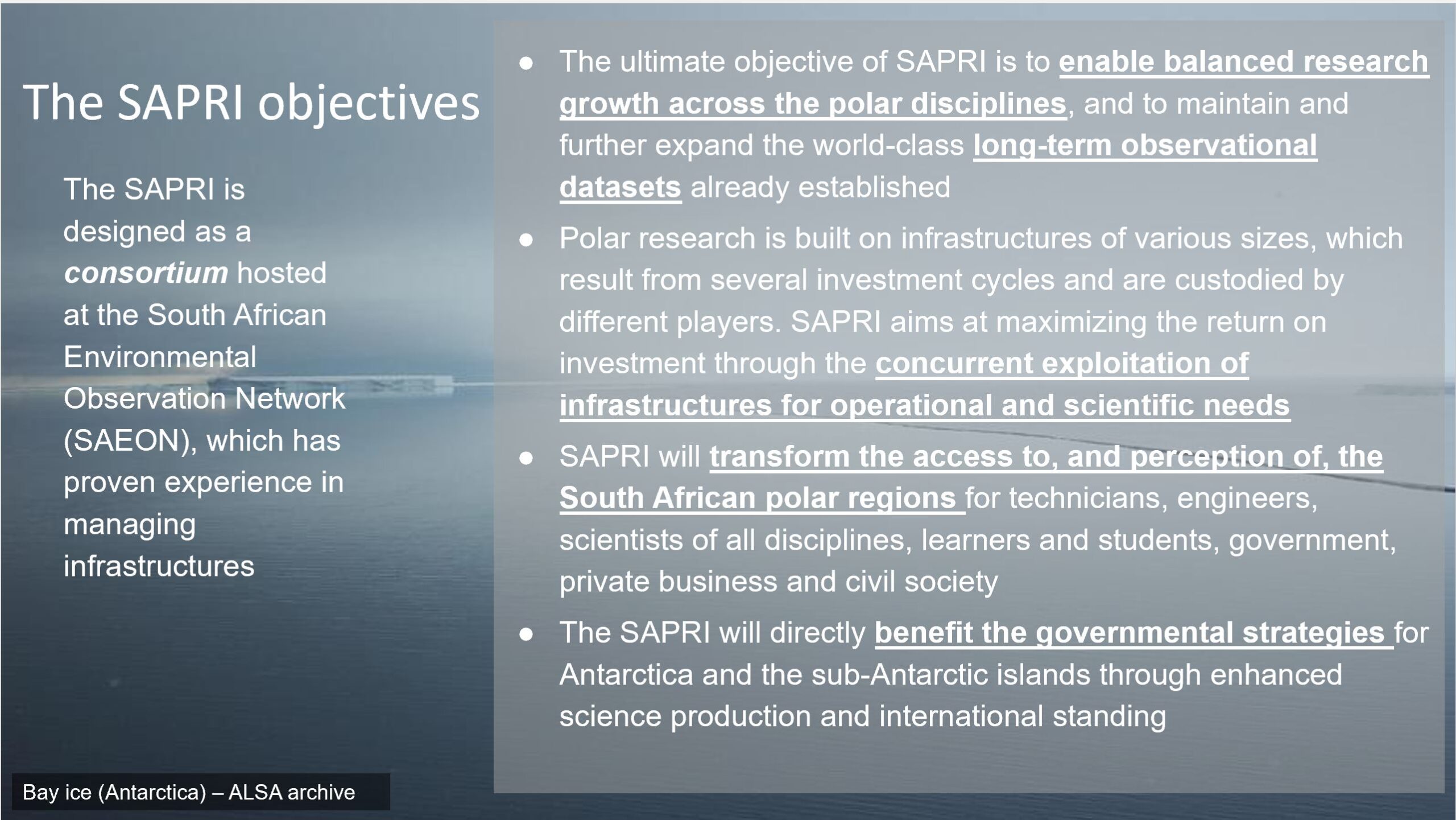 From SAPRI Proposal: “South Africa is in dire need of transformation and capacity development within the polar science community. A key aspect of the uniqueness of South African Antarctic science is that it is the only African country involved on the Antarctic continent, and therefore has a leadership role to play in promoting African Antarctic science. Whereas SAPRI represents the transformation of an existing system and a new way of doing, the issue of transformation along demographic criteria is pertinent for SAPRI. The SAPRI needs to develop young black and / or female scientists, technicians and engineers. Antarctic research should not only be a workspace for those who study environmental science, but also attainable to those who study engineering, social sciences, creative arts, journalism, law, finance and management. SAPRI will promote the multidisciplinary nature of research possibilities in the Antarctic sphere, expanding our reach, our research footprint and the diversity of our community.”
From SAPRI Proposal: “South Africa is in dire need of transformation and capacity development within the polar science community. A key aspect of the uniqueness of South African Antarctic science is that it is the only African country involved on the Antarctic continent, and therefore has a leadership role to play in promoting African Antarctic science. Whereas SAPRI represents the transformation of an existing system and a new way of doing, the issue of transformation along demographic criteria is pertinent for SAPRI. The SAPRI needs to develop young black and / or female scientists, technicians and engineers. Antarctic research should not only be a workspace for those who study environmental science, but also attainable to those who study engineering, social sciences, creative arts, journalism, law, finance and management. SAPRI will promote the multidisciplinary nature of research possibilities in the Antarctic sphere, expanding our reach, our research footprint and the diversity of our community.”
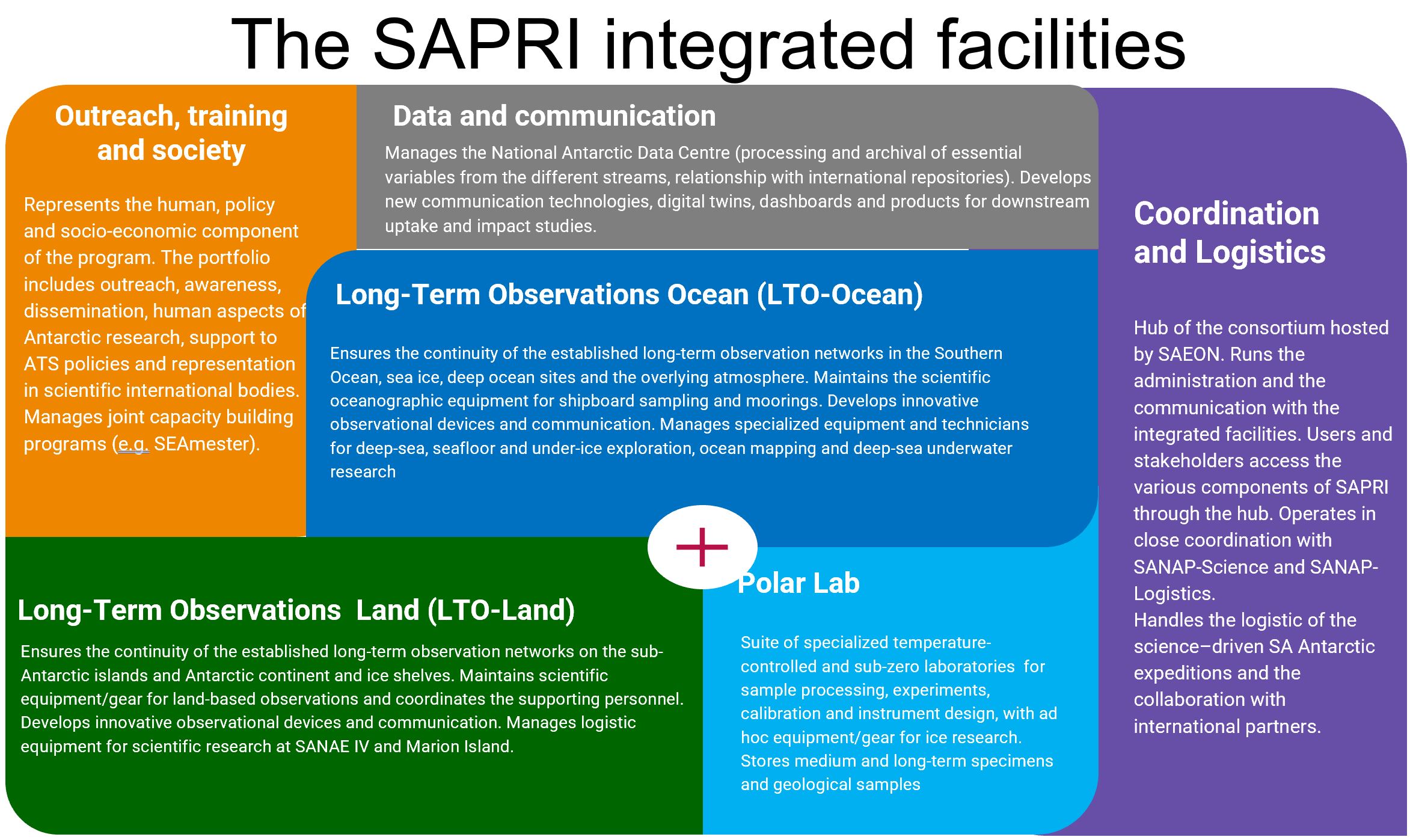 Research Coordinator – Data, Products and Society
Research Coordinator – Data, Products and Society
Research Coordinator – Oceans and Atmosphere
Research Coordinator – Polar Lab
Research Coordinator – Terrestrial
Please note SAEON/SAPRI has some data curator, ocean modelling and Senior IT systems administrator positions open, all of them can be found here.
It is important to note firstly that these are not pure academic/science positions but the aim is to train people in a broader scope of work, although there is a science component; secondly, the candidates do not have to have experience in the Southern Ocean/polar field but they do need to have experience in the relevant field.
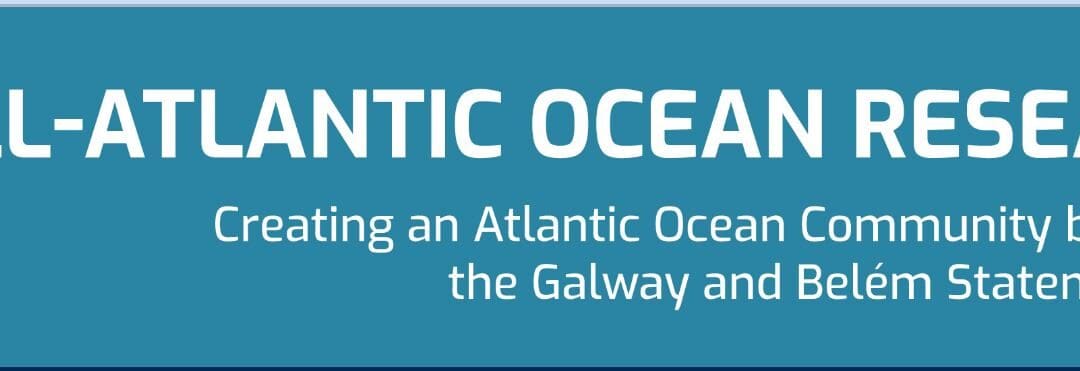
by Ria Olivier | Aug 2, 2022 | Research, SA Polar Research Infrastructure, SAPolarRI, SAPRI, Science
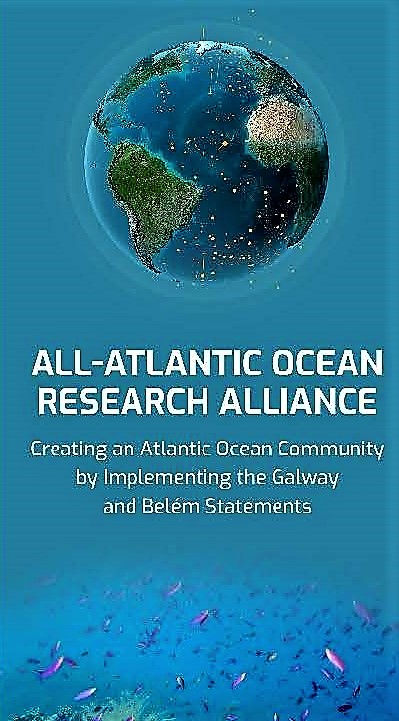 The All-Atlantic Ocean Research Alliance 2022 Forum was co-hosted by the United States and Brazil, in collaboration with the European Commission, over two events between May and July 2022. Outcomes from the Scientific Event in May were highlighted at the Ministerial Event in Washington, D.C. July 12-14, which featured ministerial interventions and the signing of the All-Atlantic Ocean Research & Innovation Alliance Declaration. The Declaration outlines the vision of the All-Atlantic and will build upon collaboration between existing initiatives in the Atlantic Ocean on ocean research and innovation.
The All-Atlantic Ocean Research Alliance 2022 Forum was co-hosted by the United States and Brazil, in collaboration with the European Commission, over two events between May and July 2022. Outcomes from the Scientific Event in May were highlighted at the Ministerial Event in Washington, D.C. July 12-14, which featured ministerial interventions and the signing of the All-Atlantic Ocean Research & Innovation Alliance Declaration. The Declaration outlines the vision of the All-Atlantic and will build upon collaboration between existing initiatives in the Atlantic Ocean on ocean research and innovation.
During a side event “Research Cooperation from Pole to Pole” hosted at the residence of the Portuguese Ambassador in the USA, Washington, DC. Dr Juliet Hermes, Acting Manager of SAPRI hosted at the South African Environmental Observation Network (SAEON) Egagasini node and Dr Tamaryn Morris, Senior Marine Scientist at South African Weather Service attended this meeting on 12 July.
 Introduction to the Southern Ocean/Antarctic Research interests of the All-Atlantic partners from the United States, Europe, Brazil and Canada. Dr Tamaryn Morris gave an introduction of South Africa research interests.
Introduction to the Southern Ocean/Antarctic Research interests of the All-Atlantic partners from the United States, Europe, Brazil and Canada. Dr Tamaryn Morris gave an introduction of South Africa research interests.
A panel discussion on challenges and best practices for All-Atlantic cooperation and preparation of recommendations and next steps to facilitate an All-Atlantic cooperation in Polar research was chaired by Evan Bloom. Dr Juliet Hermes was one of the panelists. A summary of recommendations was done afterward.
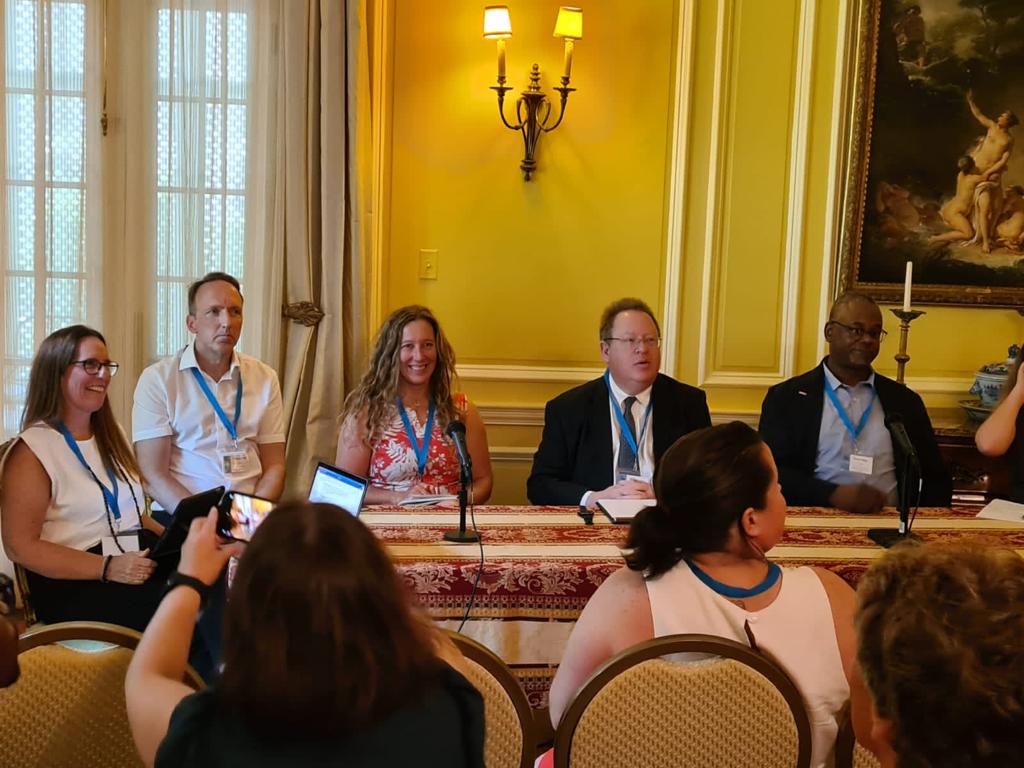 Juliet Hermes: ” The panel raised some very pertinent questions around polar infrastructure. It was interesting to hear those other countries struggle with the same issues as us and the need for shared best practices was highlighted.
Juliet Hermes: ” The panel raised some very pertinent questions around polar infrastructure. It was interesting to hear those other countries struggle with the same issues as us and the need for shared best practices was highlighted.
The meeting was a great networking opportunity and SAPRI has been invited to collaborate on the next major European funding call. We also had the opportunity to contribute to key messages for the ministers.”
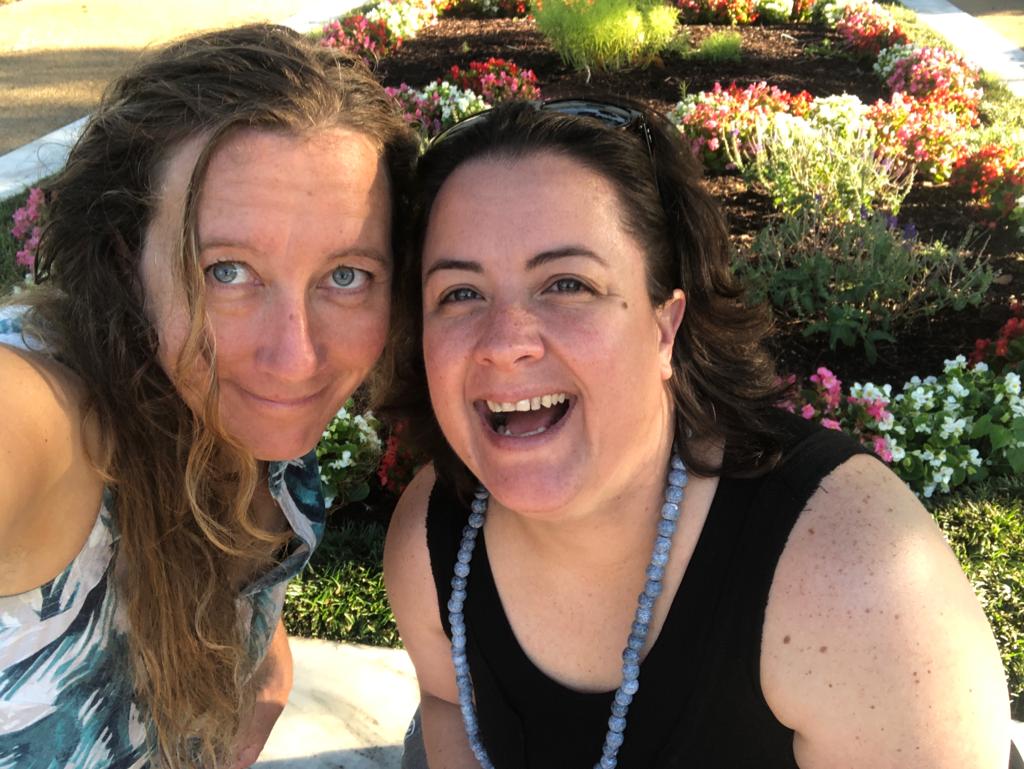 Juliet and Tammy did make time to take a picture while in Washington.
Juliet and Tammy did make time to take a picture while in Washington.
Ria Olivier, Antarctic Legacy of South Africa, 02 August 2022

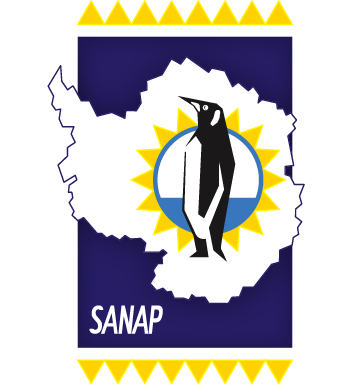













 Four new positions are available as part of the SAPRI professional development acceleration program which ties in with the SAPRI transformation drive. These positions are not the integrated facility coordinator positions, but they are growth positions within each IF. The South African Environmental Observation Network (SAEON) is a research platform funded by the Department of Science and Innovation (DSI) and managed by the National Research Foundation (NRF). SAEON is mandated to establish and manage long-term environmental observatories; maintain reliable long-term environmental data sets; promote access to data for research and/or informed decision-making; and contribute to capacity building. These positions are supported by the DSI’s South African Polar Research Infrastructure (SAPRI) programme.
Four new positions are available as part of the SAPRI professional development acceleration program which ties in with the SAPRI transformation drive. These positions are not the integrated facility coordinator positions, but they are growth positions within each IF. The South African Environmental Observation Network (SAEON) is a research platform funded by the Department of Science and Innovation (DSI) and managed by the National Research Foundation (NRF). SAEON is mandated to establish and manage long-term environmental observatories; maintain reliable long-term environmental data sets; promote access to data for research and/or informed decision-making; and contribute to capacity building. These positions are supported by the DSI’s South African Polar Research Infrastructure (SAPRI) programme. From SAPRI Proposal: “South Africa is in dire need of transformation and capacity development within the polar science community. A key aspect of the uniqueness of South African Antarctic science is that it is the only African country involved on the Antarctic continent, and therefore has a leadership role to play in promoting African Antarctic science. Whereas SAPRI represents the transformation of an existing system and a new way of doing, the issue of transformation along demographic criteria is pertinent for SAPRI. The SAPRI needs to develop young black and / or female scientists, technicians and engineers. Antarctic research should not only be a workspace for those who study environmental science, but also attainable to those who study engineering, social sciences, creative arts, journalism, law, finance and management. SAPRI will promote the multidisciplinary nature of research possibilities in the Antarctic sphere, expanding our reach, our research footprint and the diversity of our community.”
From SAPRI Proposal: “South Africa is in dire need of transformation and capacity development within the polar science community. A key aspect of the uniqueness of South African Antarctic science is that it is the only African country involved on the Antarctic continent, and therefore has a leadership role to play in promoting African Antarctic science. Whereas SAPRI represents the transformation of an existing system and a new way of doing, the issue of transformation along demographic criteria is pertinent for SAPRI. The SAPRI needs to develop young black and / or female scientists, technicians and engineers. Antarctic research should not only be a workspace for those who study environmental science, but also attainable to those who study engineering, social sciences, creative arts, journalism, law, finance and management. SAPRI will promote the multidisciplinary nature of research possibilities in the Antarctic sphere, expanding our reach, our research footprint and the diversity of our community.”

 The
The  Introduction to the Southern Ocean/Antarctic Research interests of the All-Atlantic partners from the United States, Europe, Brazil and Canada. Dr Tamaryn Morris gave an introduction of South Africa research interests.
Introduction to the Southern Ocean/Antarctic Research interests of the All-Atlantic partners from the United States, Europe, Brazil and Canada. Dr Tamaryn Morris gave an introduction of South Africa research interests. Juliet Hermes: ” The panel raised some very pertinent questions around polar infrastructure. It was interesting to hear those other countries struggle with the same issues as us and the need for shared best practices was highlighted.
Juliet Hermes: ” The panel raised some very pertinent questions around polar infrastructure. It was interesting to hear those other countries struggle with the same issues as us and the need for shared best practices was highlighted. Juliet and Tammy did make time to take a picture while in Washington.
Juliet and Tammy did make time to take a picture while in Washington.
